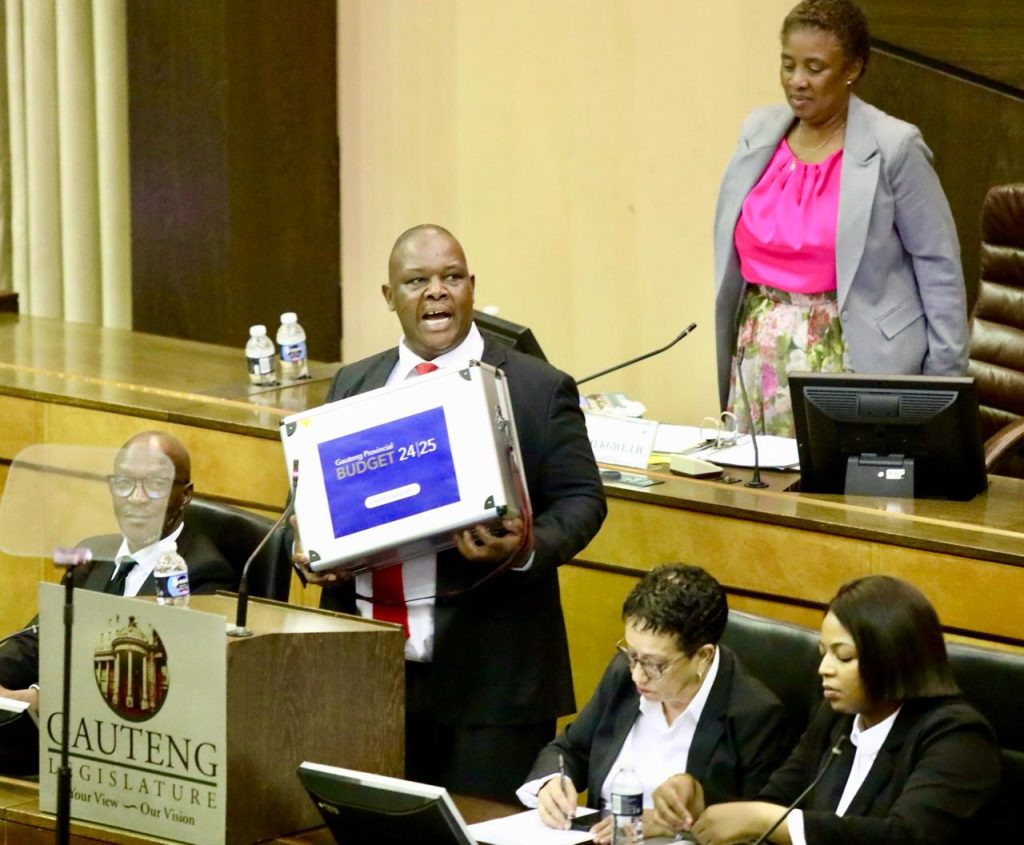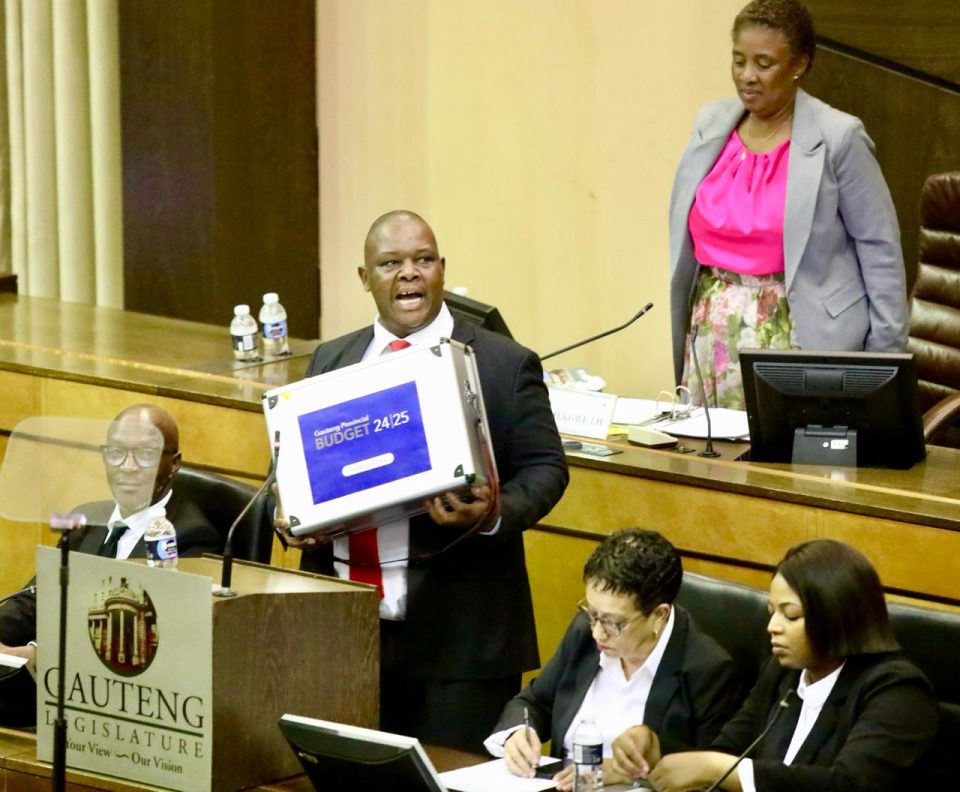
Gauteng Finance Departments’ Sixth administration is satisfied and buoyant about how it has managed the public funds over the past years.
This was revealed by Gauteng Finance MEC, Jacob Mamabolo during the recent tabling of the 2024/25 Provincial budget at a packed Gauteng Legislature.
READ BELOW SNIPPETS FROM HIS BUDGET SPEECH!!!
PROMOTING TRANSPARENCY AND COMPLIANCE IN FINANCIAL MANAGEMENT
Honourable Members, as we march towards the end the Sixth Administration, it is absolutely important that we reflect on some of the key achievements of this term in relation to our work of managing the public purse.
The 2022/23 audit outcomes were the best of the Sixth Administration. All departments in the province achieved unqualified audits outcomes. Six of these departments achieved clean audit outcomes. There were no disclaimers.
These outcomes demonstrated progress made on governance and financial management, due to amongst other things, compliance with rules and regulations, performing risk-based audits that assisted departments to improve the internal control environment, risk management and governance processes.
We have maintained the implementation of the Open Tender system and ensured that all bids over R2 million are subjected to probity audit.
A total of 428 projects have been awarded through Open Tender since 2014 amounting to R41.6 billion. The provincial government has never incurred irregular expenditure on Open Tender transactions.
Madam Speaker, in adhering to the call of professionalising supply chain management, we partnered with National Treasury and the Transport Sector Education and Training Authority, we have trained 246 supply chain management officials from departments, municipalities and entities who have now been accredited with a standard based NQF Level 05 qualification termed the Higher Certificate: Supply Chain Management. This is to ensure sound financial management and improve compliance levels within the public sector.
The intergovernmental Debt Management Committee has assisted municipalities to collect R15.6 billion from departments and entities for services, rates, and taxes. The three metropolitan municipalities followed by Emfuleni Local Municipality received the largest share of these funds.
We have decided to extend the mandate of the Debt Management Committee to include national departments and parastatals.
LEVERAGING PROCUREMENT TO DRIVE ECONOMIC TRANSFORMATION
Madam Speaker, let me now make a point about how this government is using its massive procurement spent to fundamentally transform the township economy, and set it on a faster growth trajectory.
Throughout this term of government, Gauteng Provincial Treasury, the Gauteng Department of Economic Development and other partners have been crisscrossing the province, providing supplier development workshops and registering businesses on the Central Supplier Database (CSD).
These efforts led to the registration of more than 30 700 township suppliers on the CSD. To demonstrate our confidence in these township-based companies, provincial government went on to conduct business with 22 725 of these companies owned by blacks, women, youth, people with disabilities and military veterans, to the value of over R14.2 billion during this term of government.
We welcome the passing of the Public Procurement Bill by the National Assembly. In its current form, the Bill is aligned to the progressive transformative procurement approach that we are striving towards achieving guided by the ground-breaking Township Economic Development Act (TEDA).
PAYMENT OF SUPPLIERS
Honourable Members, payment of suppliers on time is not only a requirement in terms of the Public Finance Management Act; this also assists businesses to improve cash flow that is important for their sustainability and expansion.
In 2019, the EXCO Lekgotla took a resolution that the Electronic Invoice Submission (EIS) system must be utilised as a platform to submit invoices to provincial departments.
Since issuing this directive, we can report that as at the end of January, the province had received more than 1 million invoices through the system.
For the first time in January 2024, all service providers submitted their invoices via the EIS platform allowing them to track the status of their invoices leading to payment stage.
We are delighted to announce that this led to most departments and several entities achieving 100 per cent payment of invoices within 30 days.
We know fully well that we still have a long way to go to achieve our goal of paying all suppliers on time, particularly by the Gauteng Department of Health. However, we remain optimistic that through the implementation of initiatives such as the EIS, we will achieve our objective.


